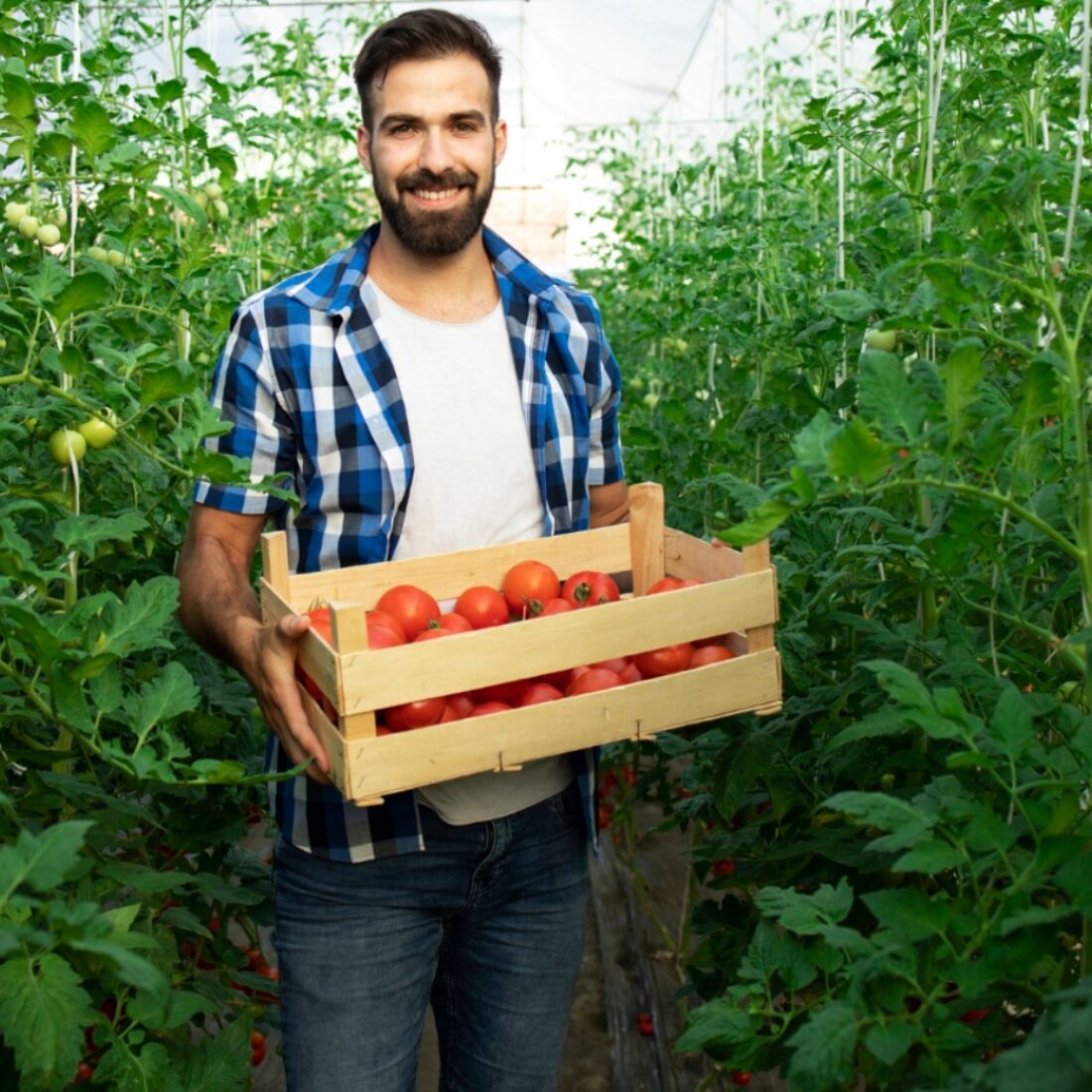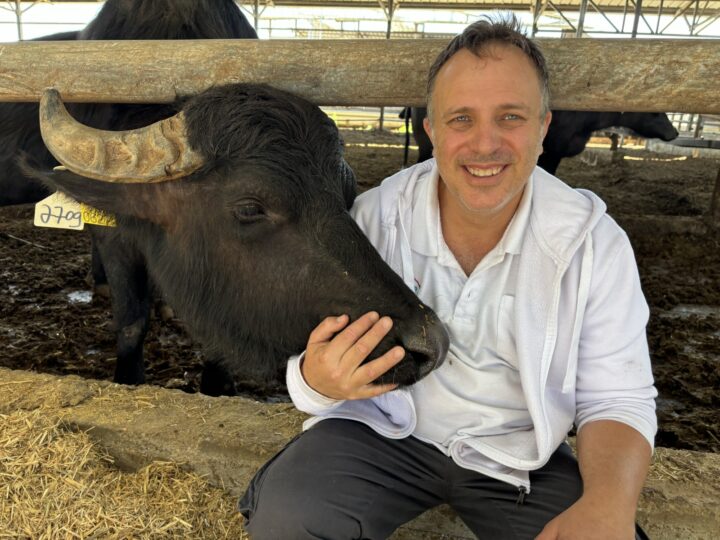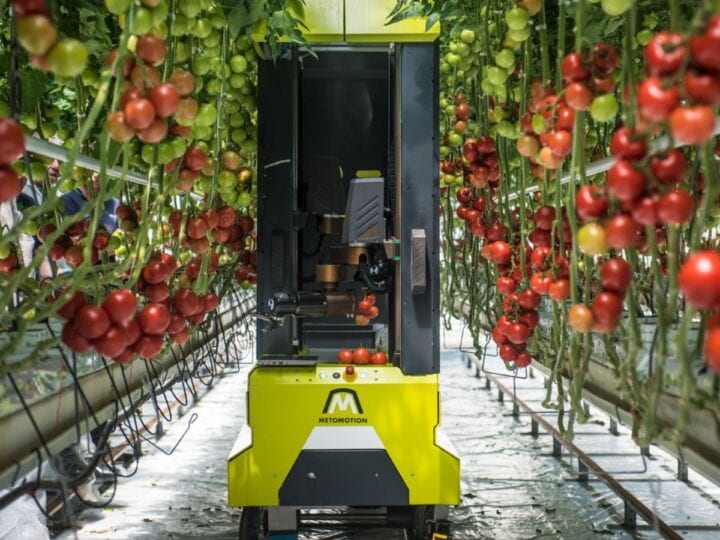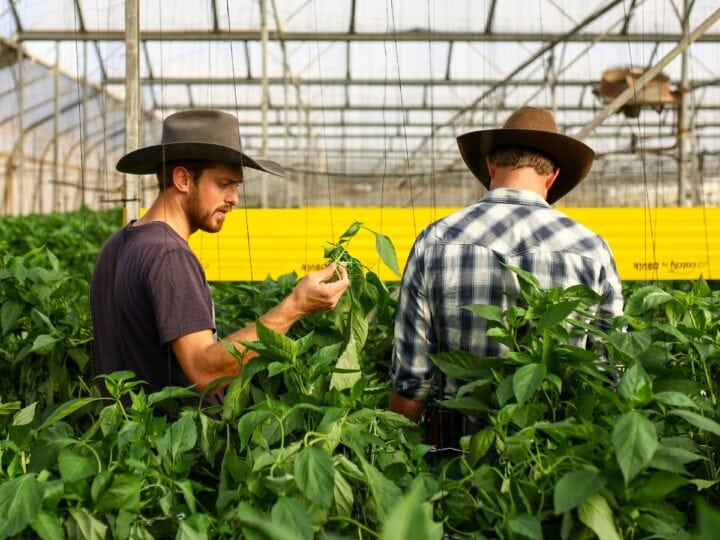Menachem Friedman, 67, is a successful peach and nectarine grower in the Golan Heights. He followed in the footsteps of his parents, Transylvanian farmers who came to Israel after surviving the Holocaust.
Today across the developed world, older farmers like Friedman are encouraging their children to pursue more lucrative and secure white-collar careers.
Factors such as extreme weather, chronic water and labor shortages, and spiraling shipping costs led to more than 100,000 farm closures in the United States alone between 2011 and 2018.
Yet, four of Friedman’s seven children planted their own roots on the family farm: Sharya, 42; Israel, 40; Ido, 35; and Nachshon, 29.
“We chose agriculture out of a conscious choice that this is where we want to be,” Nachshon Friedman tells ISRAEL21c. “Each of us brings with us innovation and a young spirit into a relatively old-fashioned world that has a lot of room for advancement.”
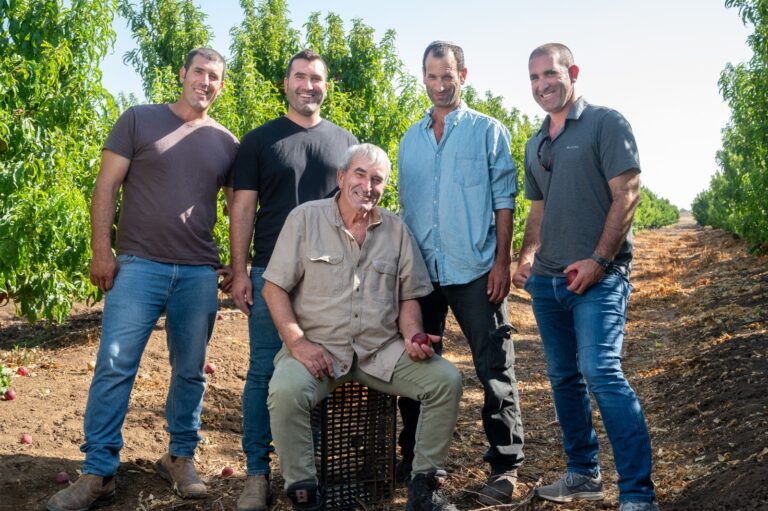
These are not the farmers of yesteryear. Sharya is finishing his doctorate in archeology, Israel and Ido are certified engineers and Nachshon has a master’s degree in economics and business administration.
Nachshon and his dad launched a startup, Mata, to address the worldwide farm labor shortage by developing an autonomous method of thinning trees – a critical but expensive, slow and labor-intensive task that determines the size (and therefore the price) of each fruit.
Mata is one of a handful of forward-thinking agricultural enterprises under consideration for support from a new investment company, Eretz-Noshevet (Settled Land).
Venture capital would allow Friedman to create a prototype from his bootstrapped technology that will “analyze the market of each farmer and advise what fruit size to reach in order to earn as much as possible from his orchards. Each of us will receive a different thinning program to reach the right fruit size,” says Friedman.
“The financial return of the farmers will be optimal, which will allow the survival of more farmers in the field and the continuation of the supply of food around the world despite the expected food crisis.”
To ensure the future of agriculture
Eretz-Noshevet was spun out of the nonprofit HaShomer HaChadash (The New Guard) organization founded in 2007 in response to agricultural crime affecting Israel’s remote northern and southern farms.
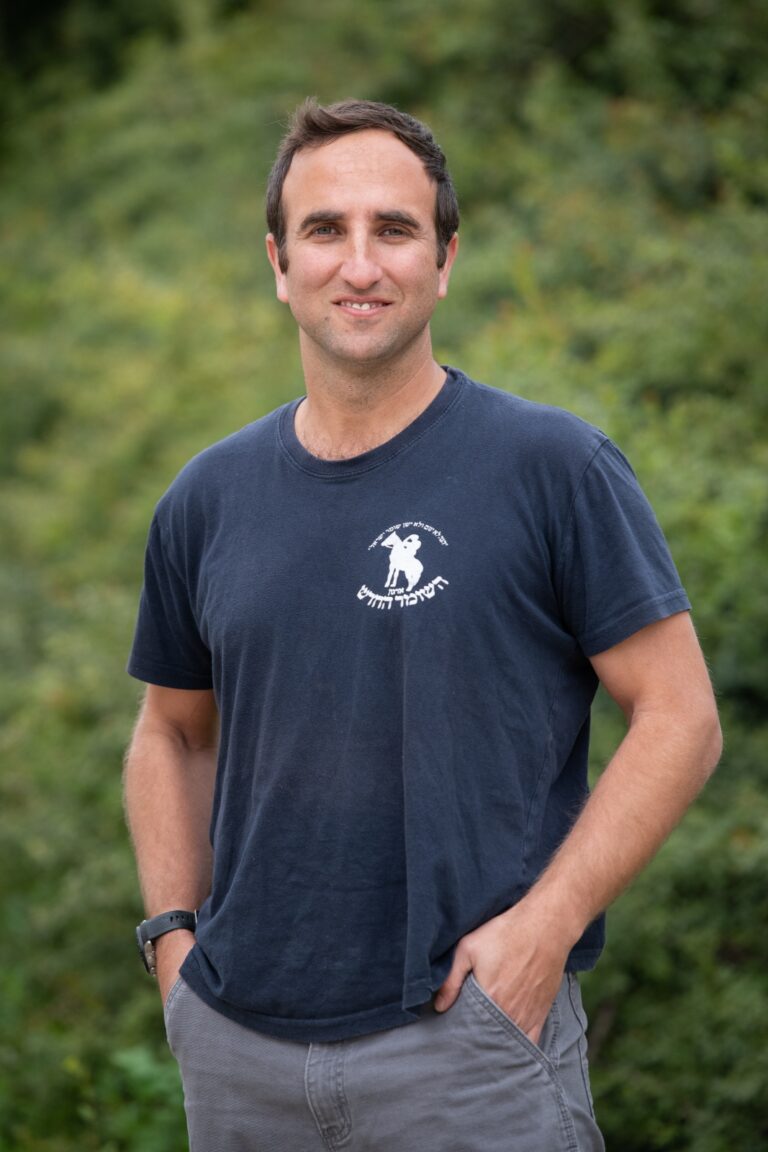
Today, thousands of volunteers help protect 1,400 farms, says HaShomer HaChadash CEO and founder Yoel Zilberman, a third-gen cattle rancher.
It became obvious that the average Israeli farmer is over 60 and the next generation isn’t going into the family business. At the same time, there are some young, business-savvy farmers like Nachshon Friedman with sustainable and fresh ideas needing investment.
“When the rivers around the world are drying up, and the war between Russian and Ukraine puts the whole world into a situation of food insecurity, Israel must do something to ensure the future of our agriculture. It must come from the business sector, and we saw ourselves as the right platform,” Zilberman tells ISRAEL21c.
Eretz-Noshevet has some heavy hitters on its 10-person investment committee, including Aleph General Partner Michael Eisenberg, SparkIL CEO Na’ama Ore and SimilarWeb CFO Jason Schwartz.
Each chosen project will receive an investment of up to half a million shekels (about $150,000).
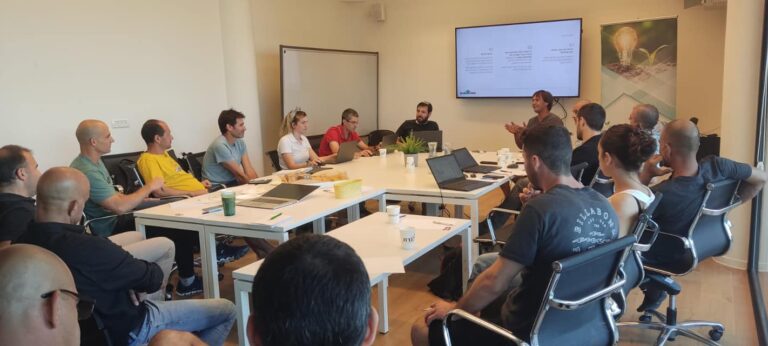
“When we started, everyone told us it would be good if we got 50 interested companies, but more than 250 applied and we had to stop taking applications after two and a half weeks,” says Zilberman. “It just shows you how much this area was neglected and needed a push to fulfil its potential.”
Hydroponic agriculture
In addition to young farmers themselves, Eretz-Noshevet also will support groundbreaking startups from more established agricultural entrepreneurs that will help the next generation of farmers.
One such entrepreneur is Lior Hessel, 54, who introduced hydroponics to Israel in 1999 in partnership with his alma mater, the Technion-Israel Institute of Technology. His engineering company, GrowPonics, manages hydroponic farms around the world – including one on Oracle cofounder Larry Ellison’s Hawaiian island.
Hessel founded AlgaeNite in 2018 to provide a sustainable alternative to today’s chemical and organic fertilizers. Chemical fertilizers leave a large carbon footprint and come from fossil fuels, while organic fertilizers are expensive and often contain pharmaceutical and hormone residues that end up in food.
“We decided to find a third way because we have to supply high-quality food at reasonable prices and it has to be sustainable,” says Hessel.
AlgaeNite’s novel solution, developed by Ben-Gurion University Prof. Sammy Boussiba, turns nitrogen from the air into fertilizer with the help of cyanobacteria, which are half bacteria, half green-blue algae.
“They do something extraordinary: They fix atmospheric nitrogen and create ammonia using the sun as their source of energy,” says Hessel. “It’s like the cyanobacteria have solar panels attached to them. The process is entirely organic, sustainable and carbon-negative for emissions.”
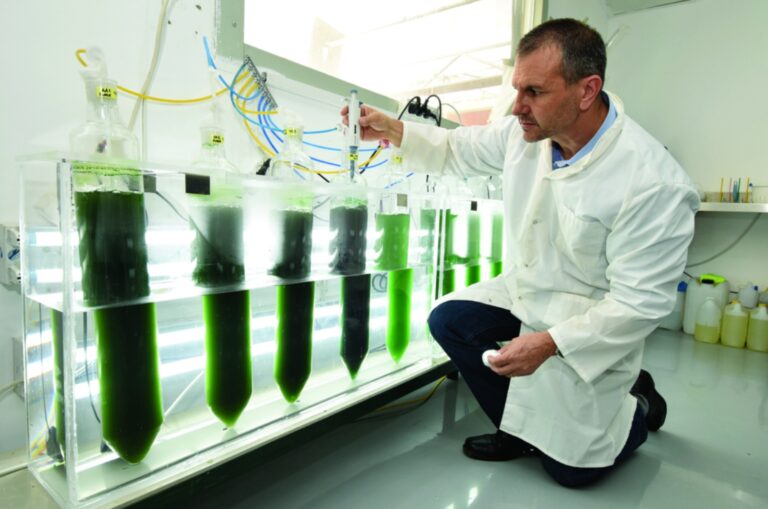
AlgaeNite is building its first production facility in southern Israel and will do so in the United States and Europe next year. Investment from Eretz-Noshevet would enable upscaling to full commercial size.
“Nobody was ever able to grow these strains of algae before,” says Hessel.
“We are focused on organic fertilizer, but they also can be used for plant-based fish or meat protein alternatives, animal feed, cosmetics and bioplastics. This could be the beginning of a new era in agriculture — and it will start in Israel.”
Doing more with less
Among other projects under consideration by Eretz-Noshevet:
- AdamaChaya (Living Soil), whose flagship product is seed mixtures for vegetation cover that preserves and improves the soil.
- BiomicAgritech, which developed a low-cost gravitational method for growing trellised vegetables downward using rotatable tubes and is working toward fully robotic greenhouses.
- Agrorim, developer of a plant-protection product targeting the moth family via slow-release encapsulated pheromones.
- Salicrop, whose biochemical treatment makes vegetable seeds more fertile in extreme conditions such as extreme heat or salty water and soil.
Zilberman notes that Eretz-Noshevet is not about “doing an exit and going to San Francisco. It’s about creating jobs and food security in Israel, strengthening the whole ecosystem. It’s about motivating young men and women to connect with the land and see in agriculture a real and sustainable economic potential.”




